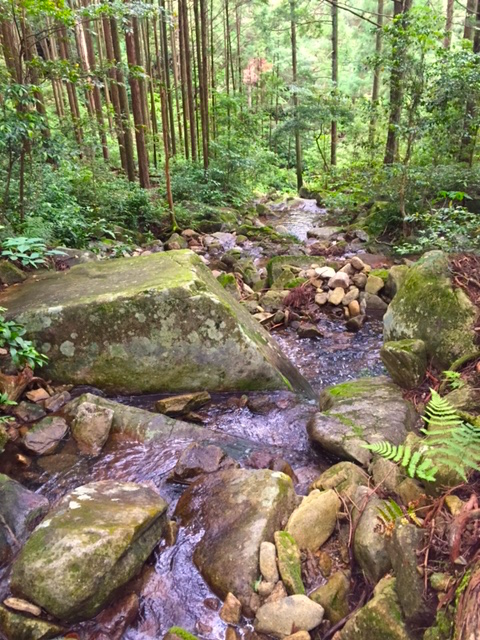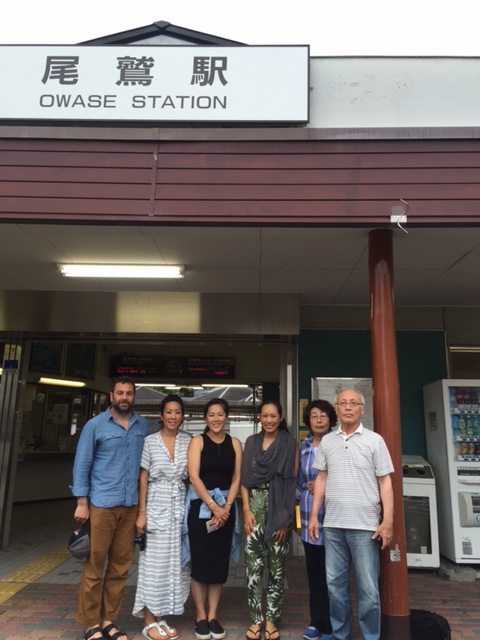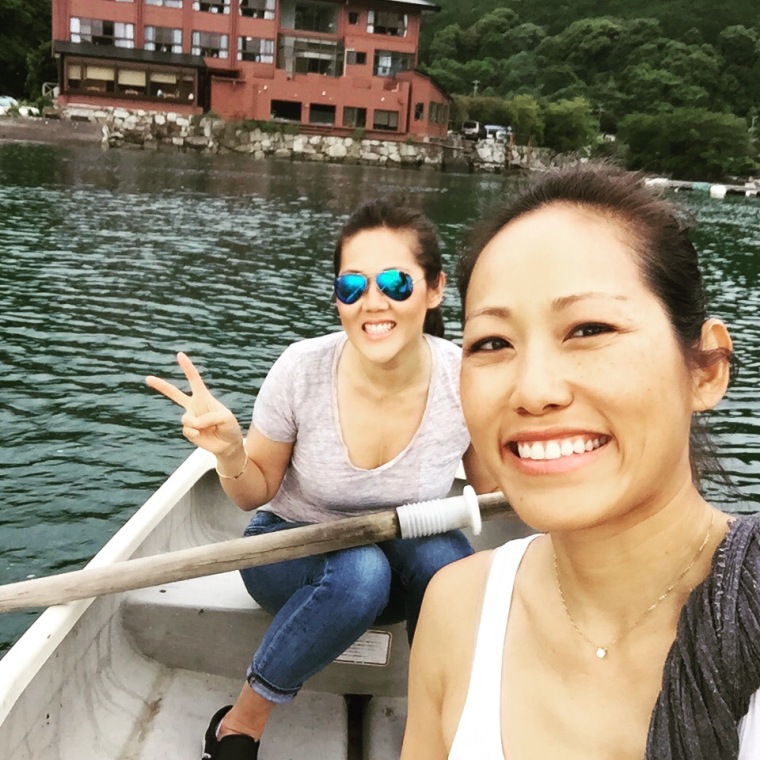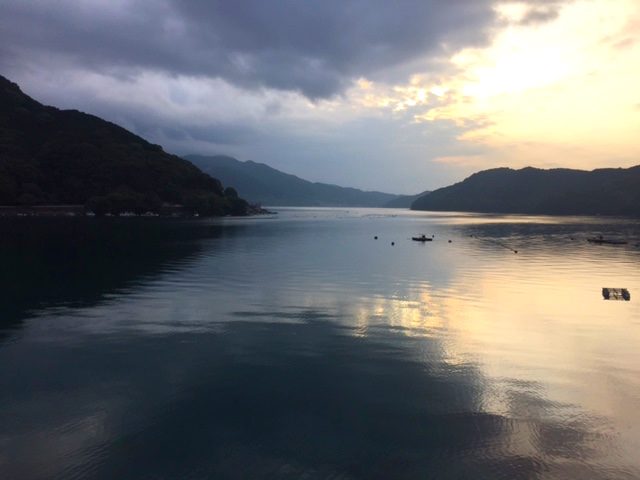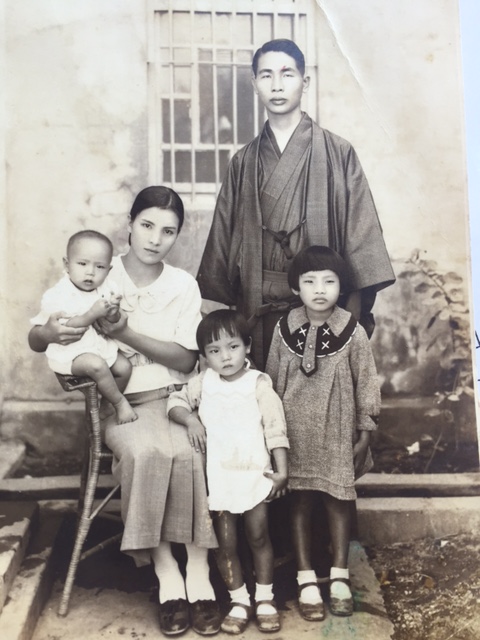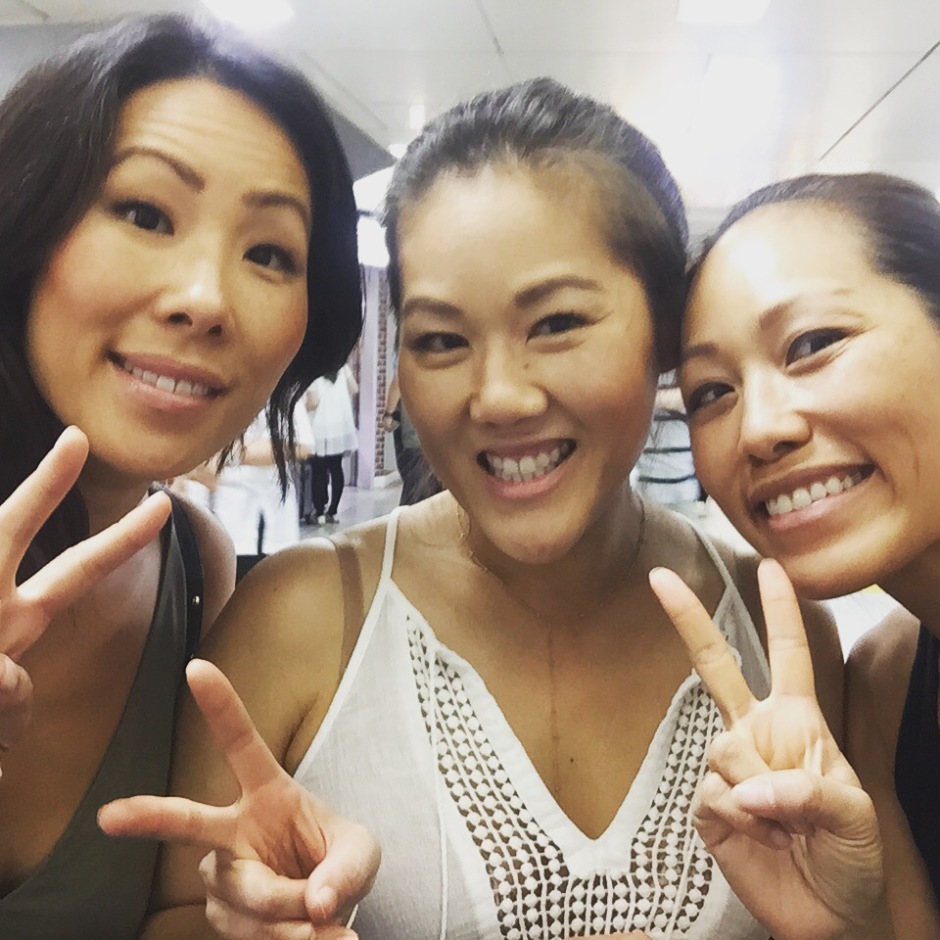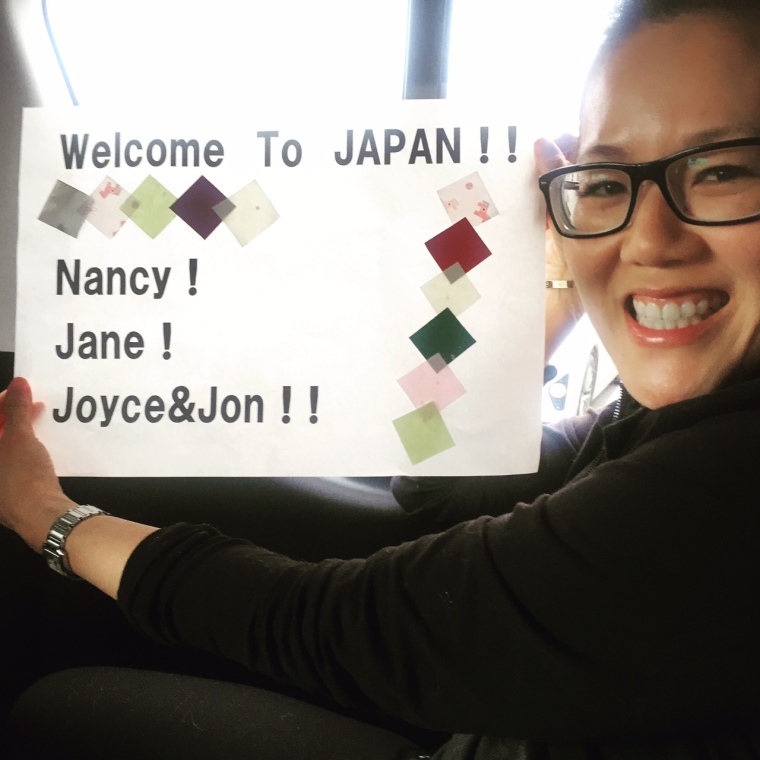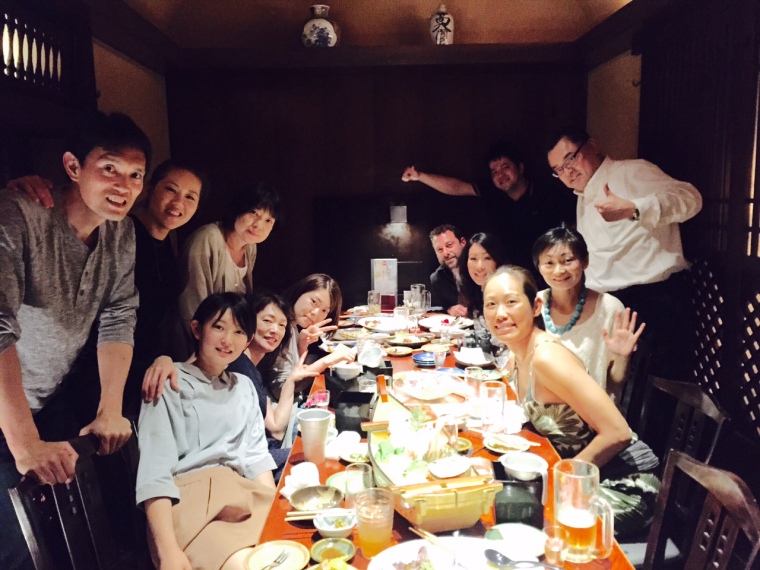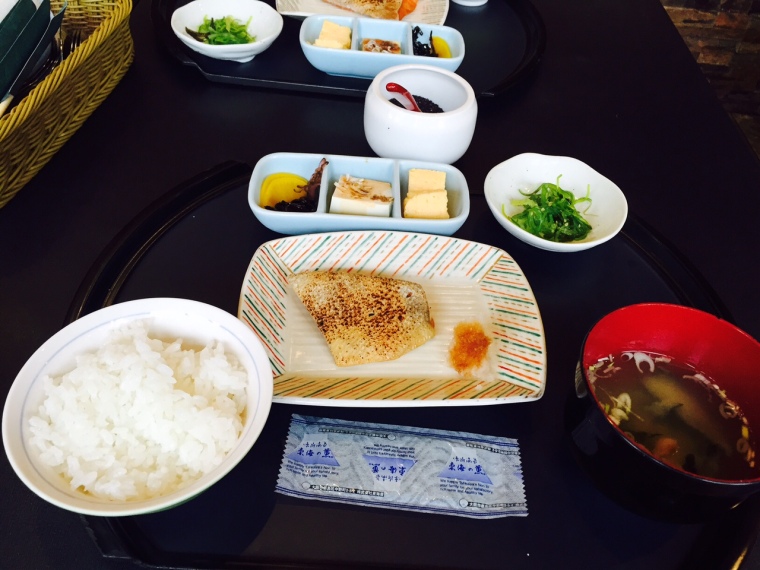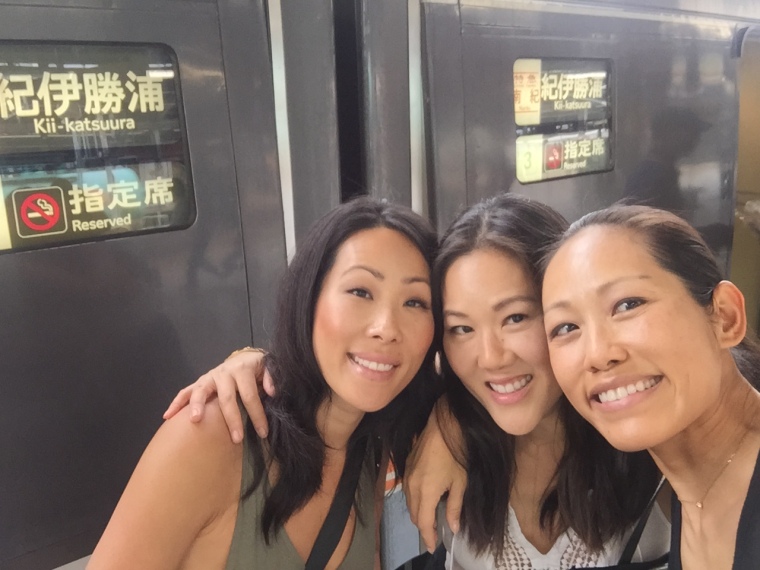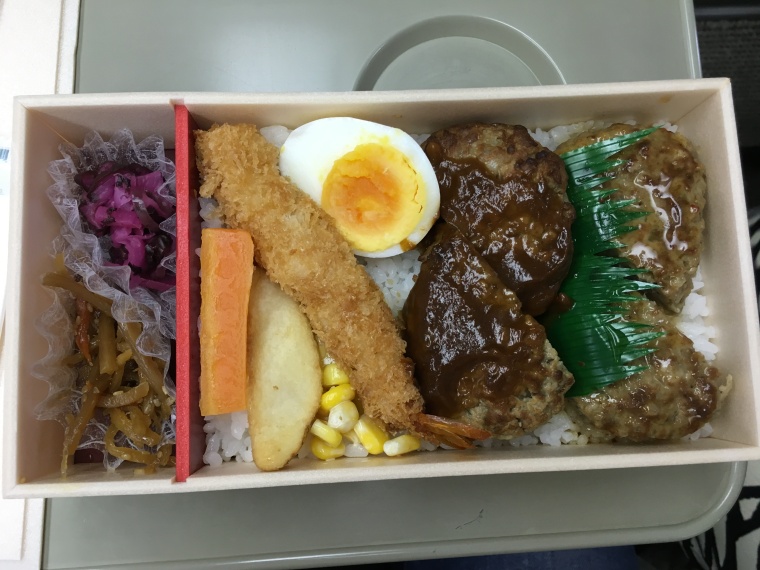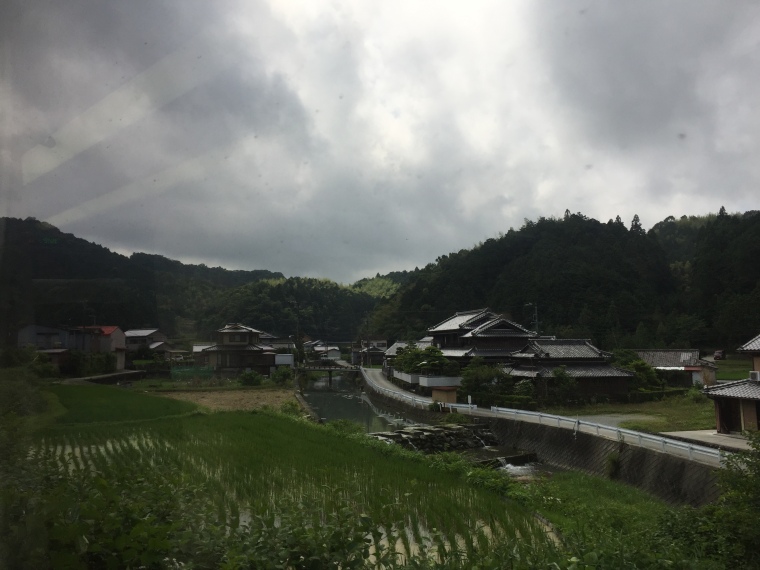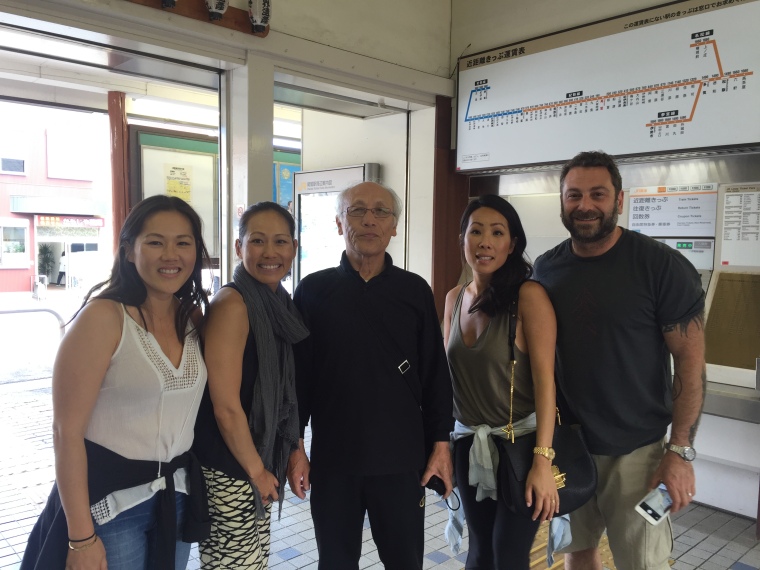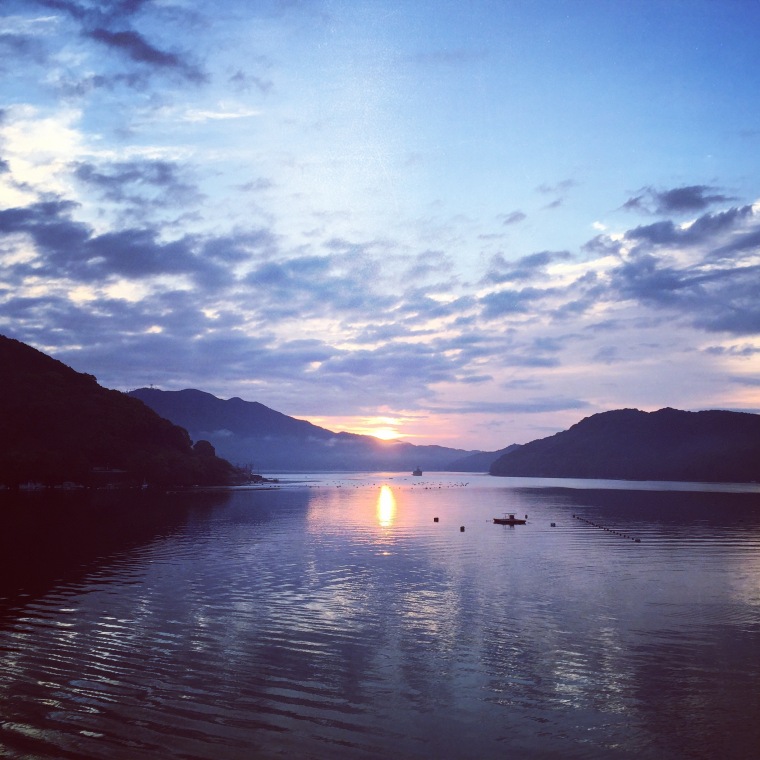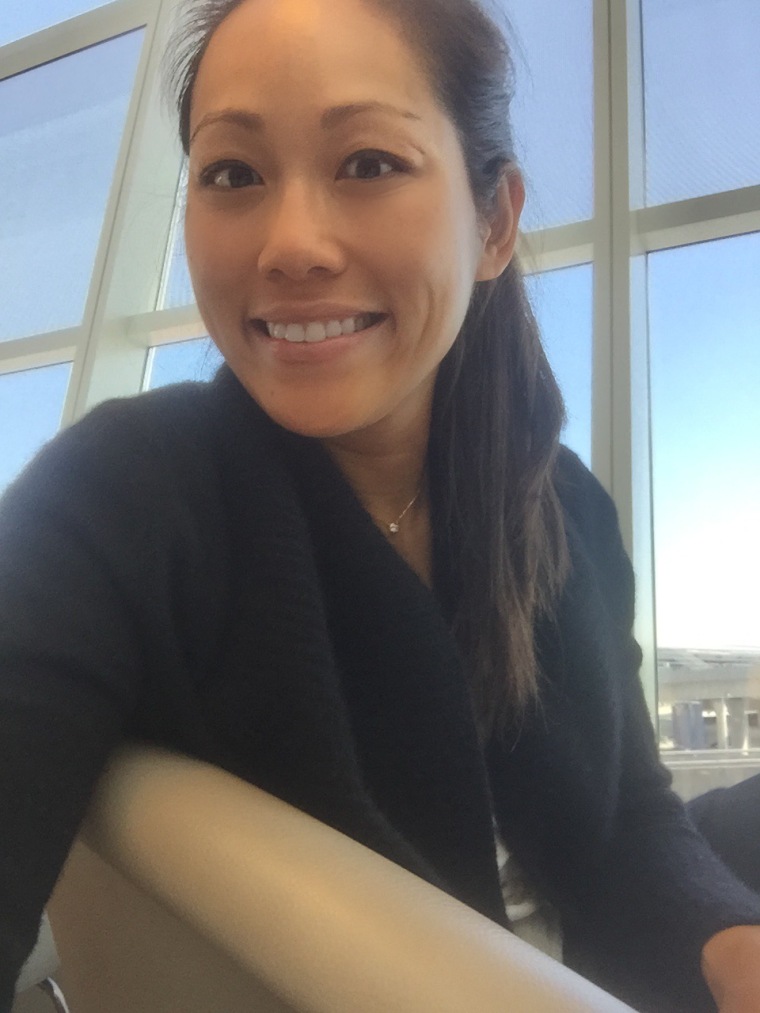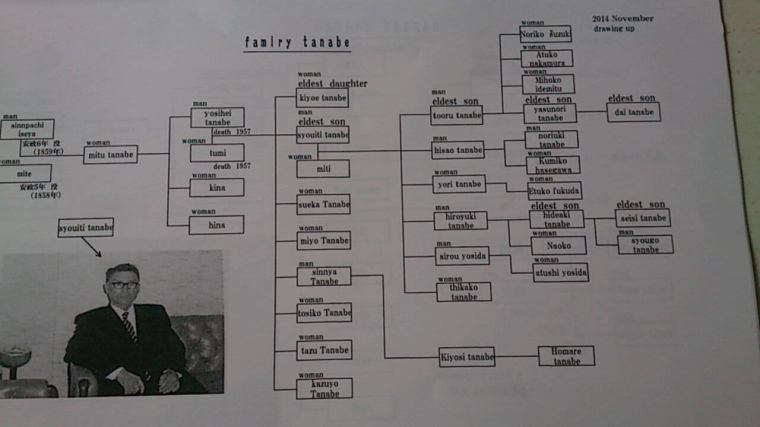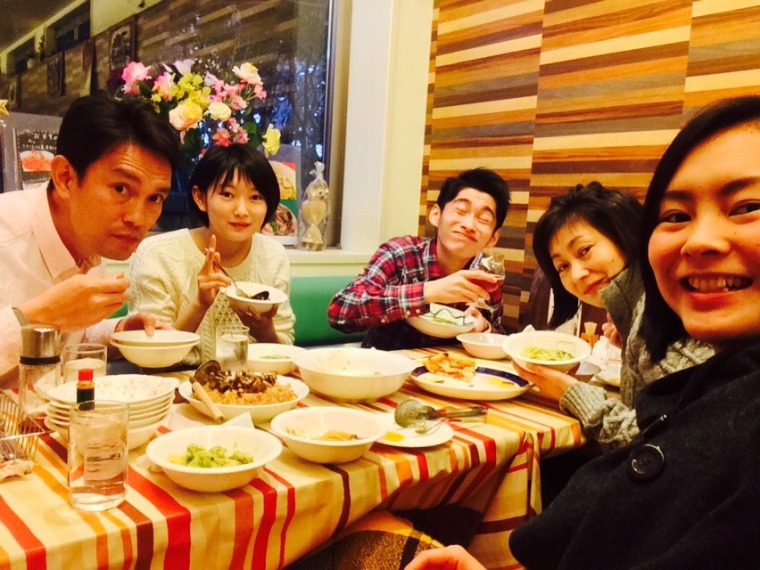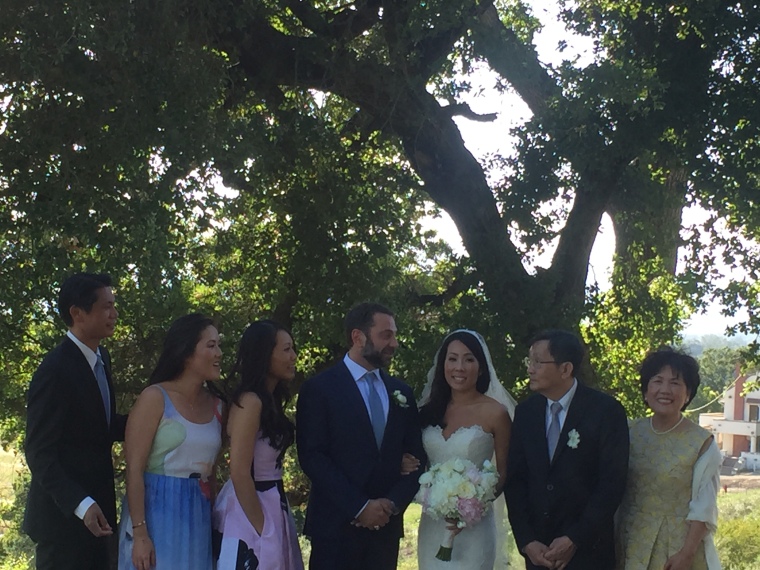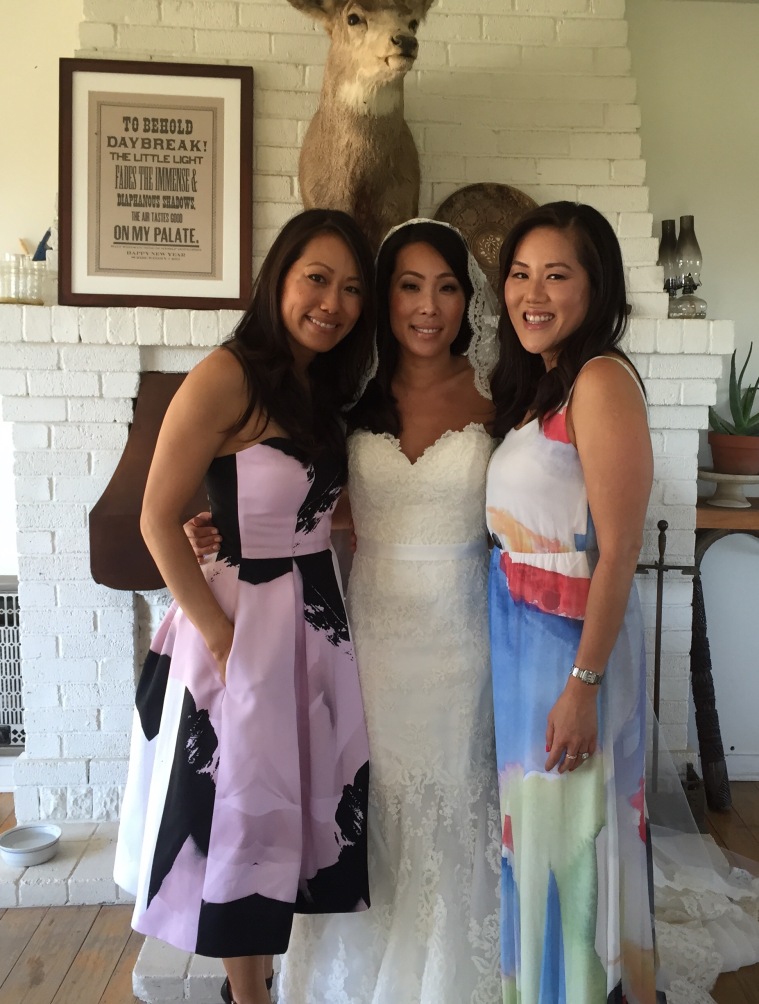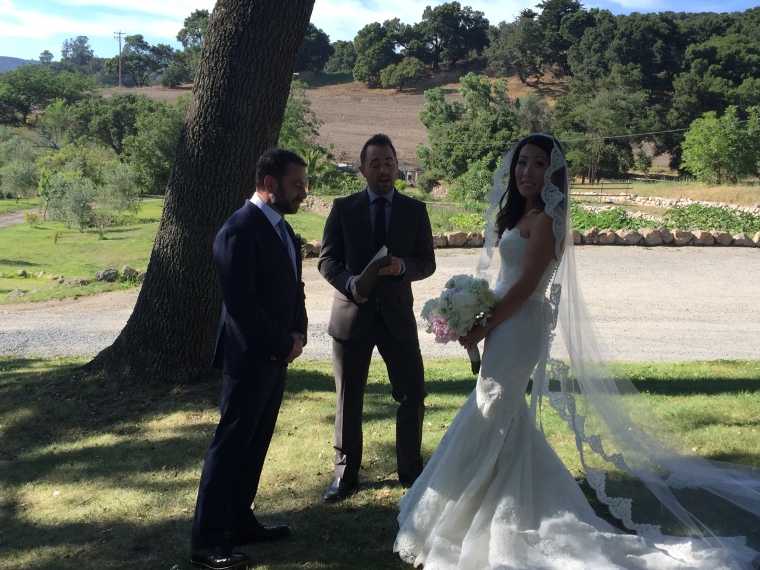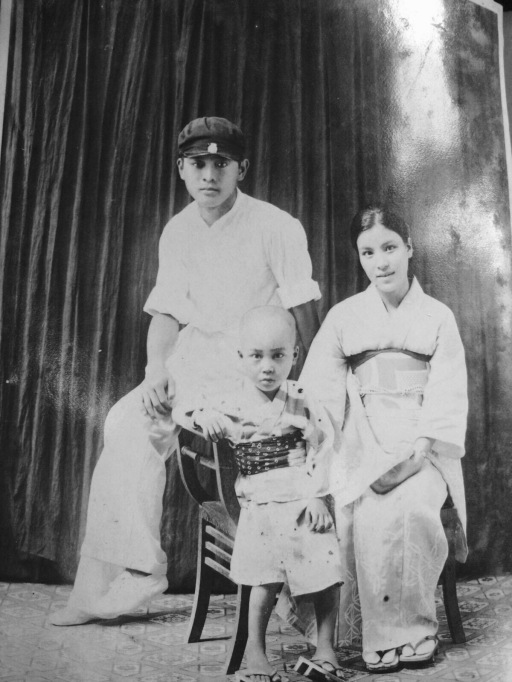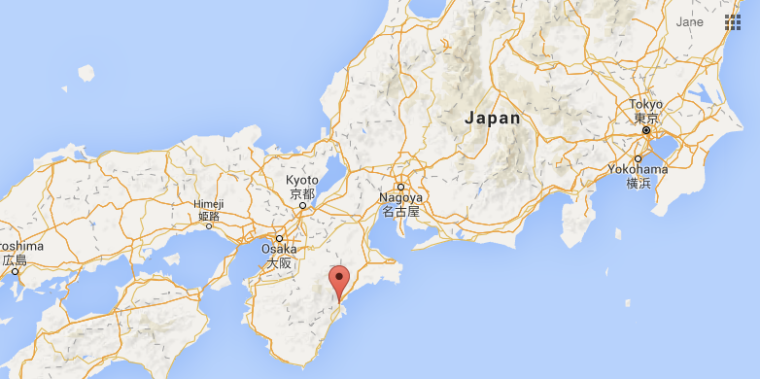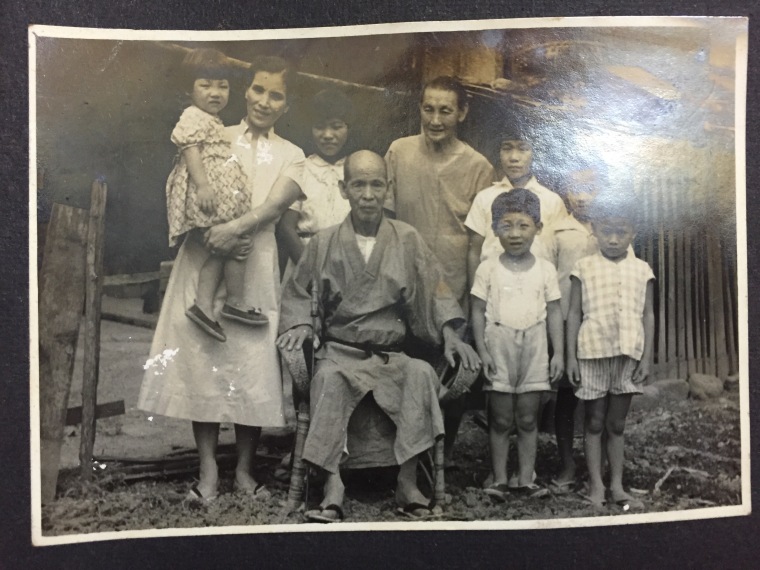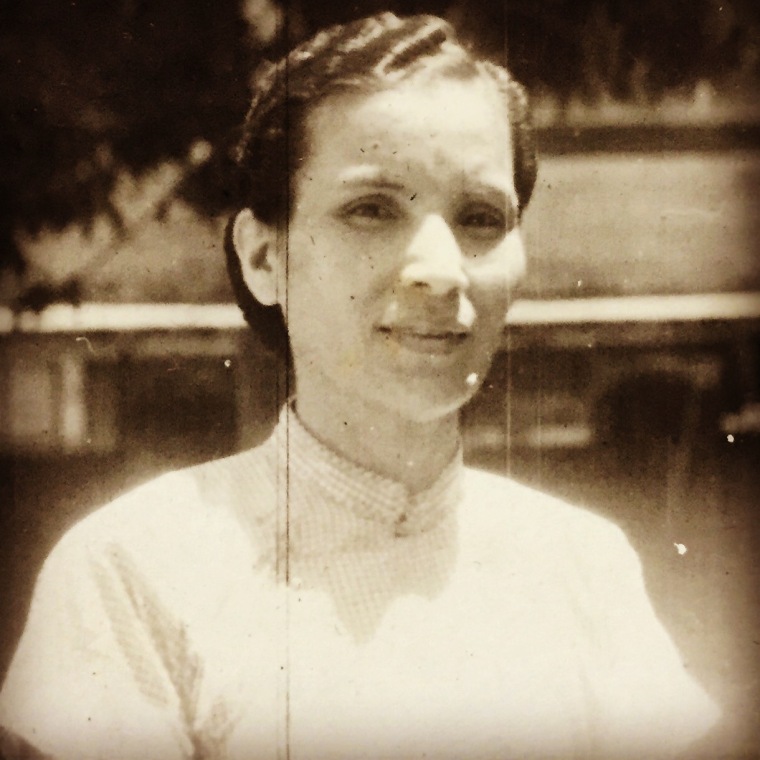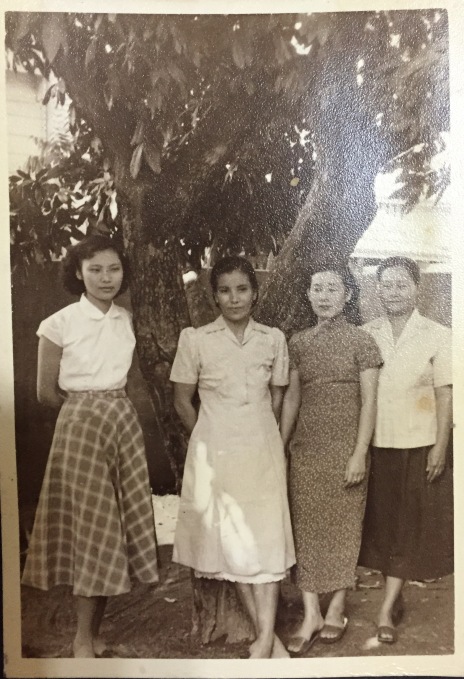On Friday morning, I woke up to this gorgeous view from my window in Owase. I can’t believe my grandmother grew up in this magical place.
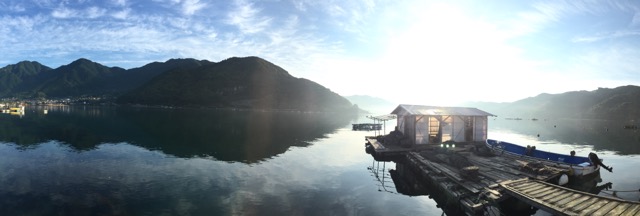
I roamed the premises and did some meditation before our delicious breakfast.
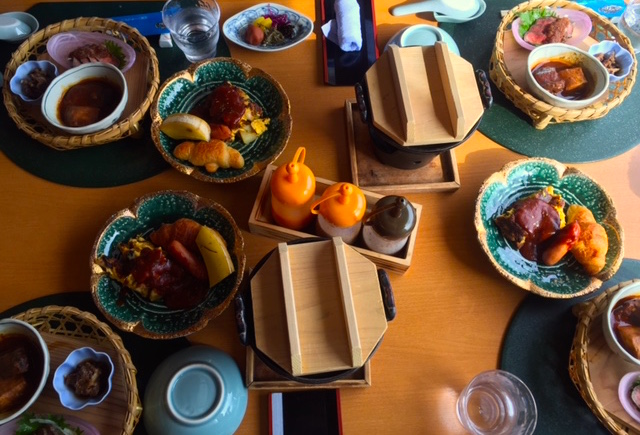
After breakfast, uncle Kiyoshi came to pick us up at the hotel. We headed to the Kumano Kodo cultural center. Apparently, this was the area where Shintoism and Buddhism began to merge hundreds of years ago. There are hundreds of shrines and sacred areas, and a number are UNESCO world heritage sites.
The cultural center was beautiful, made in old Japanese style. We met Noboru, the son of my grandmother’s younger sister (Sueka), as well as Hirosi, the grandson of my grandmother’s eldest sister (Kiyoe), both of whom were incredibly kind.
At a conference room in the cultural center, they whipped out a far more elaborate family tree and old pictures, and told us what they knew about my grandmother as we asked all our questions.
They told us that Katchan was extremely ambitious. She had done some nurse training in Owase, and saved up enough money to get herself to Tokyo, to attend a nursing school, where she eventually graduated at the top of her class. She and her sisters were always striving to improve themselves, despite having come from a small village. My grandmother was extremely headstrong and passionate. Once she had a goal, no one was going to get in her way. The power of genetics, I thought to myself.
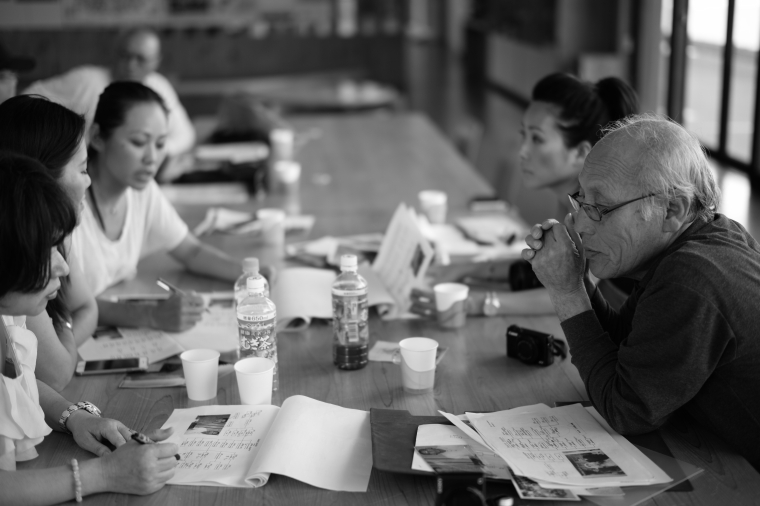
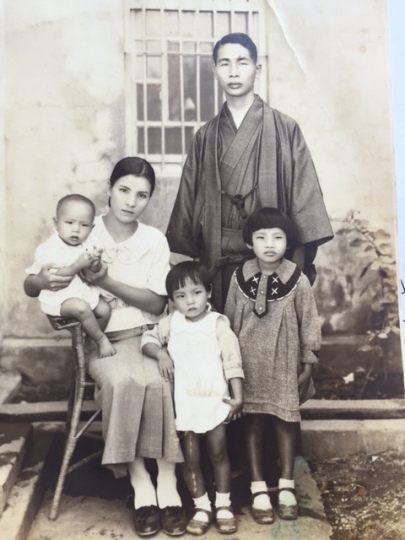
Surprisingly, although she was never one to care about money, Katchan was very enterprising. She apparently found a way to sell Japanese medical supplies into Taiwan. Although her parents were fairly well off, as property owners, Katchan’s eldest brother seemed to have a gambling problem and squandered away the family’s wealth after her parents passed away. This is a dark cloud over the family’s history and none of the relatives wanted to speak about it.
When we asked about our granduncle Syuouti, our relatives simply responded: we don’t know what he was up to. Japanese people rarely speak ill of others openly – especially in that generation. It wasn’t until we told them cousin Yasunori had already given us the backdrop that Kiyoshi, the eldest of the bunch, confirmed what had happened with an OK hand signal and a meager smile.
Nancy, since the moment we got here, has been obsessed about a childhood tale she had been told about one of my grandmother’s brothers eating the flesh of a dead man during WWII, when he was fighting for the Japanese army in Manchuria and had run out of food. She has asked every single relative since we arrived, and peppered the uncles and cousins with questions. No one had any idea what she was talking about, and looked at her like she was a bit crazy. Good thing Japanese people are so polite.
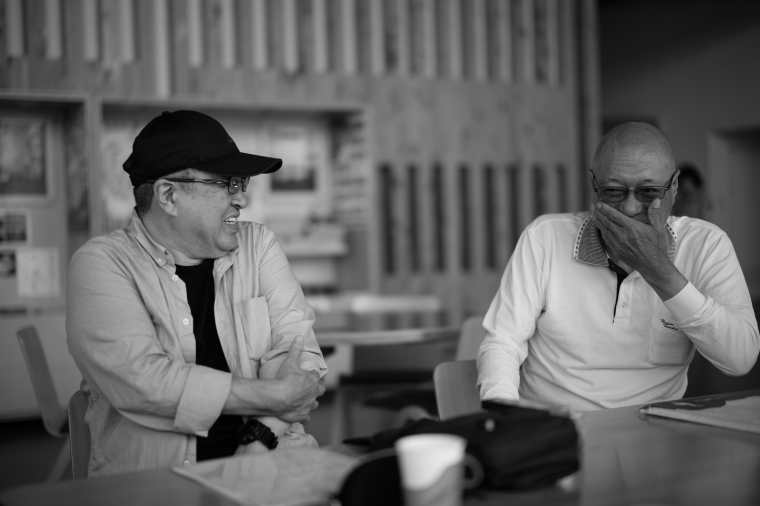
However, the story of how my grandparents met and fell in love remains nebulous.
One thing that was reiterated in this meeting (that is a huge inconsistency from the story I know from my Taiwanese side): every Japanese relative believes my grandparents met in Japan, not Taiwan, when my grandfather was doing medical training. And they are quite adamant about this fact. It actually makes much more sense than my grandparents having met in Taiwan.
But it begs the question: why did my Katchan misrepresent this to her offspring? After meeting these relatives, I now better understand how fiercely private the Japanese are – especially with anything negative. But what secrets were so shameful that she would only be able to reveal them upon her deathbed?
I suspect it may have something to do with the discrimination faced in those days when people from the colonizing country, Japan, married people from Taiwan. I’m sure it also has something to do with Katchan being headstrong, passionate and progressive beyond her time. But I doubt the answer is straightforward.
****
After the family conference meeting, we had a delicious sushi lunch. At the end, Noboru bid us farewell and thanked us for all the help my grandmother had provided his to family – once she moved to Taiwan, she often sent money home, I suspect especially when the family was going through financial troubles. His gratitude was very touching.
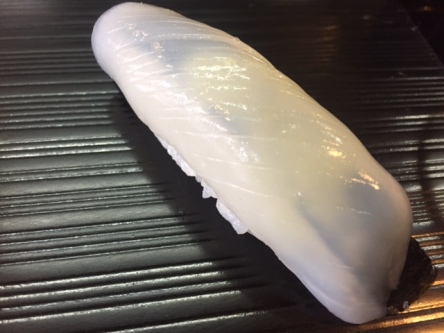
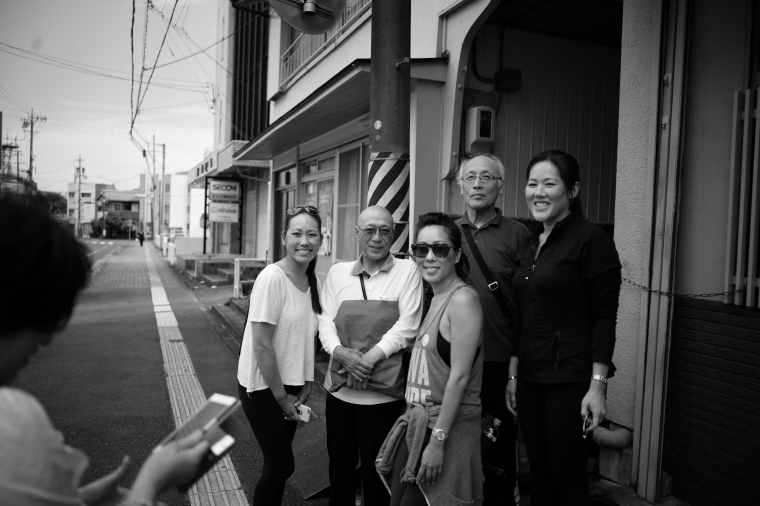
After lunch, Kiyoshi took us for a hike in an area called the Magose-toge Pass, including the a beautiful Stone Paved Path. The cutest little Shiba Inu accompanied us.
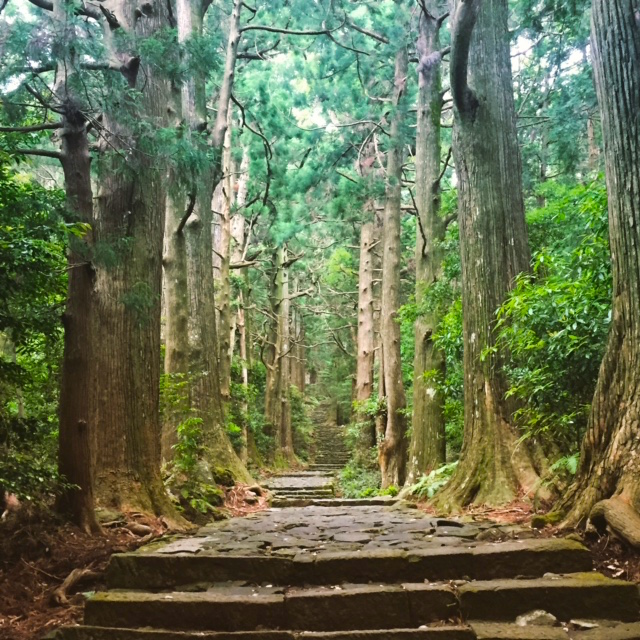
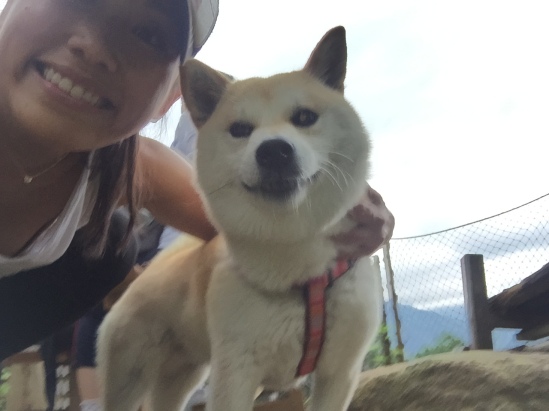
We returned home to the hotel that evening to a wonderful seafood BBQ. The food here has been absolutely incredible, and eating in this picturesque setting made it even more memorable.
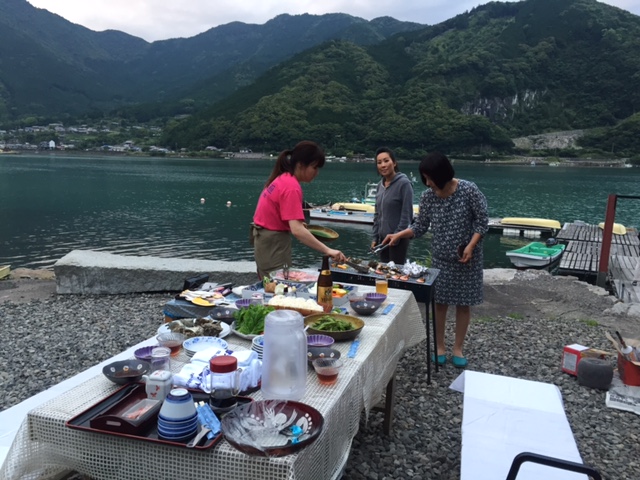
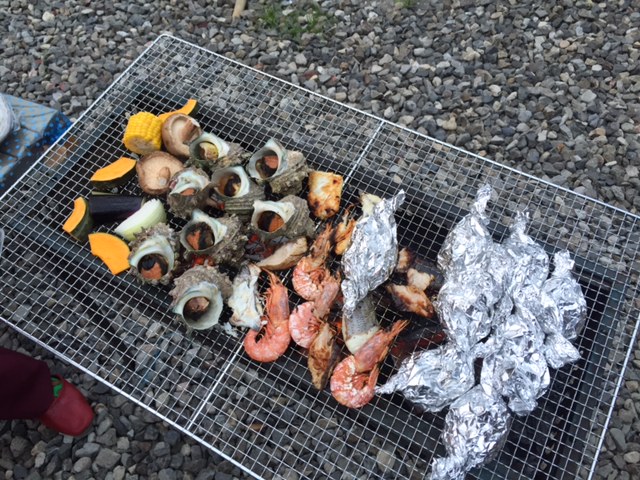
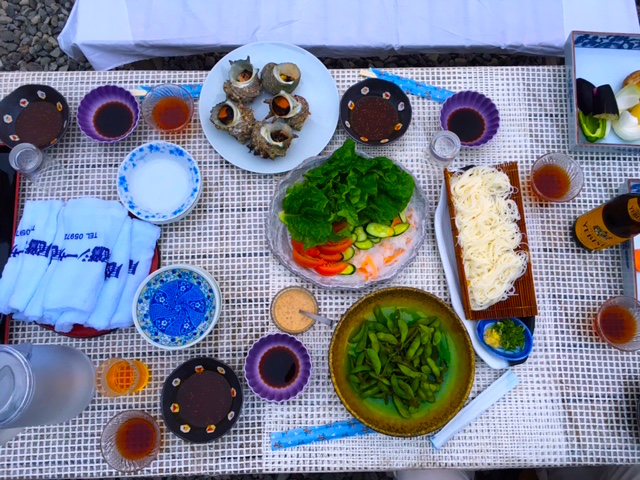
****
The next day, Kiyoshi and Tomi took us to a nearby area called Kumano Kodo in the Kii mountain range to do more hiking (by total coincidence, there was an article on the front page of the NYT today about this area)! It’s an undiscovered, yet breathtakingly beautiful place, with cypress trees, bamboo forests, streams and waterfalls running through the path.
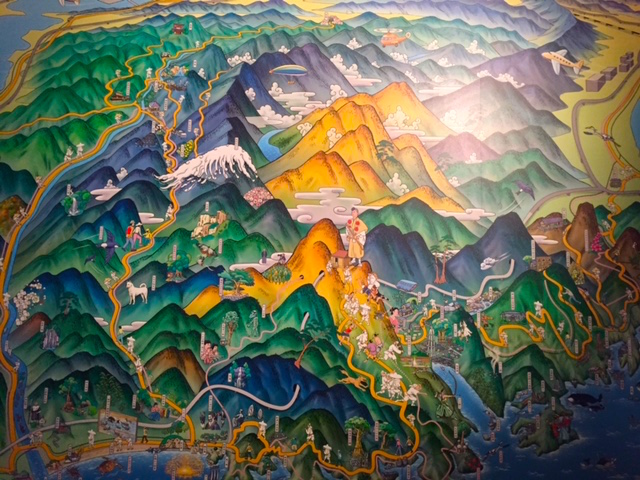
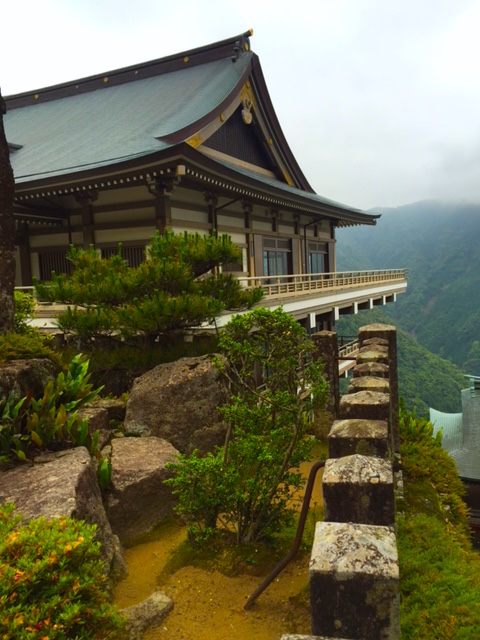
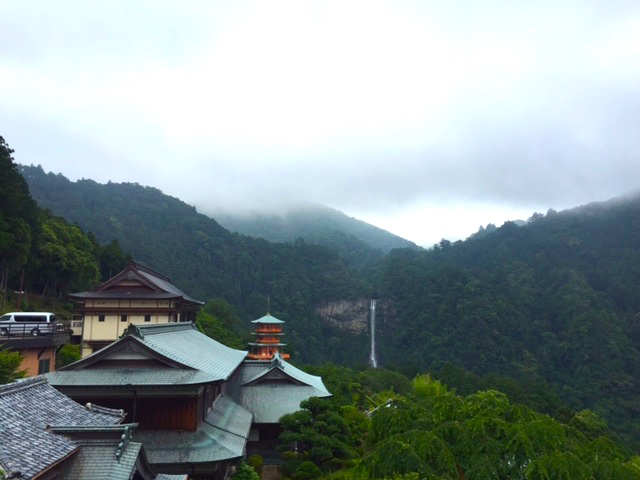
The shrine we visited is called Nachisan Seiganto, and is the last of three shrines visited in the pilgrimage people did to this area hundreds of years ago, particularly in the Edo period (1603-1868). Japanese people believe you get spiritual powers after visiting all three shrines.
The first two shrines are dedicated to the past and the future – this particular shrine is dedicated to the present. We greeted the deities, made our wishes, and burned wood to purify our souls.
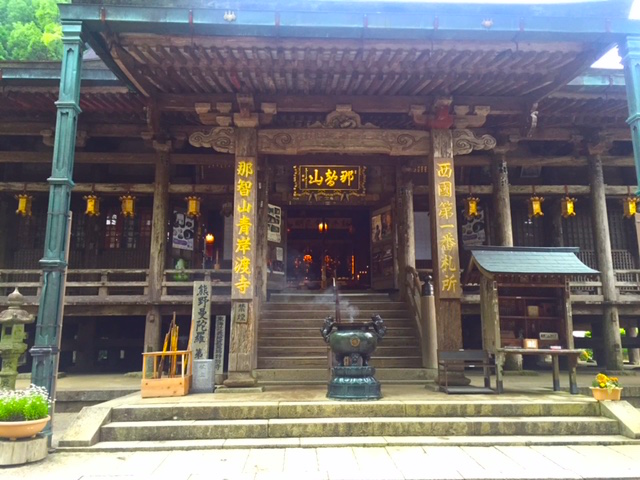
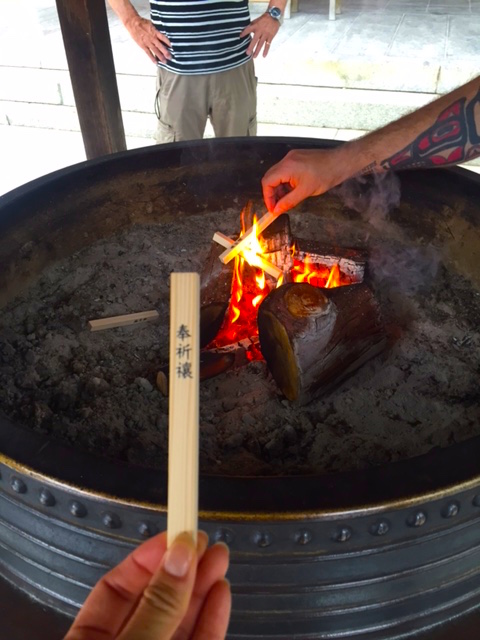
It was our last day in Owase. We had gotten a bit more information about Katchan, and a far greater understanding of how she grew up and her cultural influences on this trip.
However, her story remains a mystery.
But after our visit to the Shrine of the present, I began thinking: perhaps what brought us here was to unite us with our present, instead of further understanding the past. Perhaps it’s this exact moment in time where Katchan’s energy has been leading me.
So much of my curiosity has been centered around my grandmother’s history. But in many ways, it’s connected me to my present even more strongly. My recent trip to Taiwan was rooted in doing research about Katchan – something which brought me closer to my relatives, giving us a common purpose, despite a huge cultural gap. And it was Katchan’s story that led my sisters and I to this trip – the first trip just the three of us (+ Jon) have done together.
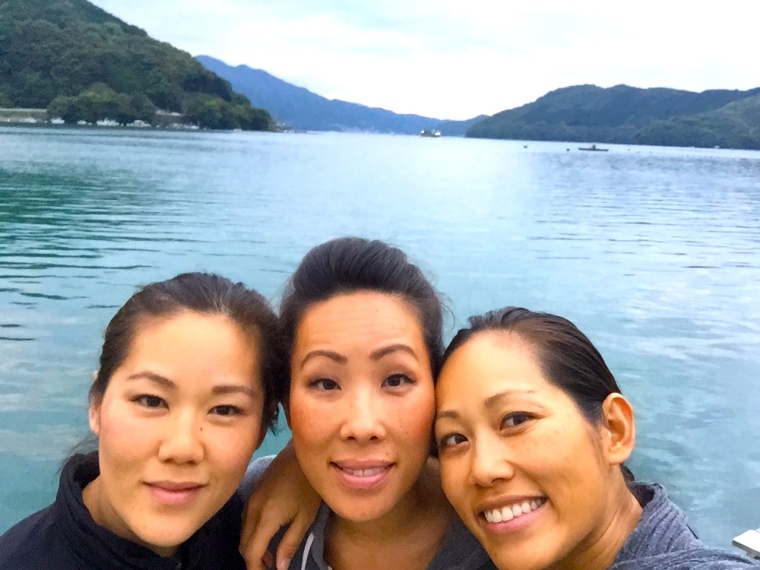
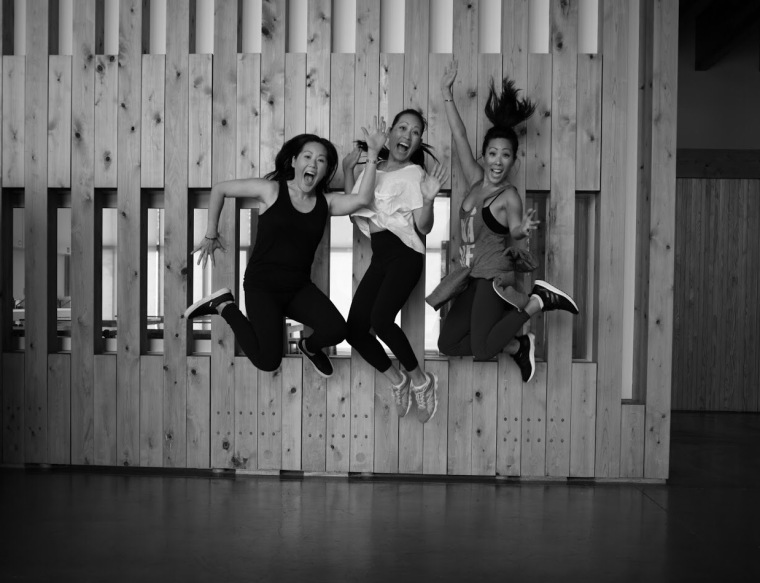
The present includes an amazing family I never knew I had – Kiyoshi , Yasunori, Noriko, Atsuko, and everyone else we’ve met in Japan have been the kindest people I could imagined. Uncle Kiyoshi generously spent three full days with us, and I have so much love for him as a result. Even Tomi and Daisuke, our translators, were wonderful and put a huge amount of work into preparing for our trip before we came. Everyone’s hospitality was magnanimous beyond anything I’ve ever experienced.
There is a saying in Japanese, ichi go, ichi e. It basically means: this is the first time I’m meeting you, and it may be the last. As a result of this mentality, Japanese people are truly the most amazing hosts. It reminds me that very experience with someone is special – every experience should be treated with love and care as if it were the last. And it’s a shining example of how I want to treat others.
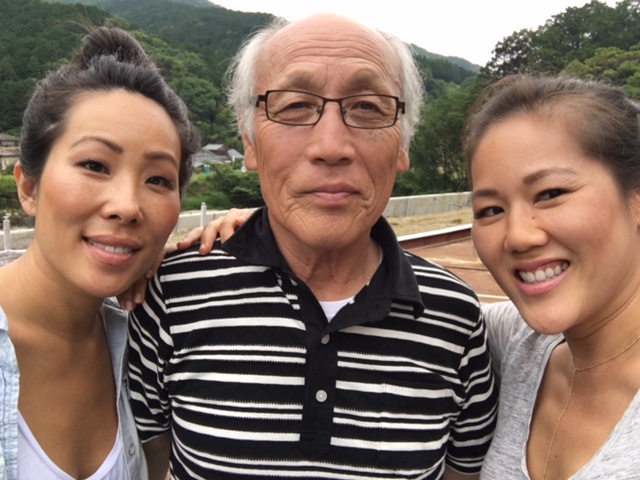
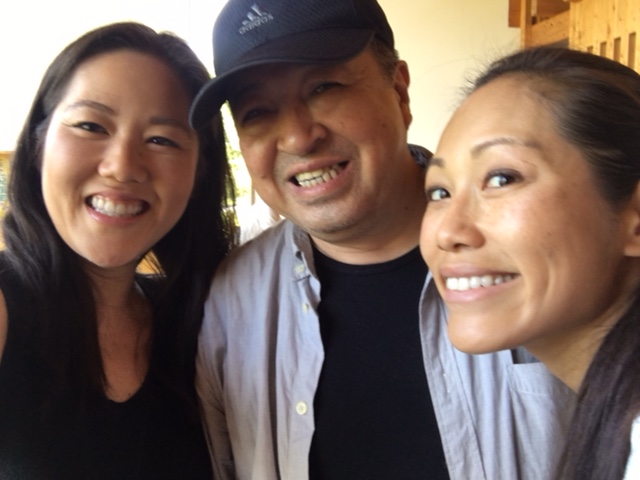
So often in life, were are revisiting the past or worrying about the future, instead of being in the present moment, appreciating everything we have now. And the now is pretty good when I take a moment to pause and think about it. My family and I are happy and in good health. I have the most incredible opportunities to see the world and meet amazing people – and truly surf the wave of life.
While I do understand more about myself knowing my grandmother’s past, ironically, perhaps the greatest gift of her past is reminding me to be in the present and to appreciate everything and everyone in my life now.
As I’m constantly reminded through meditation and surfing, everything in life is impermanent. Separated by an ocean for most of my life, my limited time with Katchan went by in a heartbeat. Life is incredibly short – our time in this world is so brief, it passes in just a blink.
Interestingly, so many of the people we met in Owase looked decades younger than they actually were. When we asked one woman how she was possibly 63, when she looked 43, she responded that she’s just a happy person. It reminded me of that fact that in our brief existence, happiness is a choice. So make sure to view the world through the lens of beauty, appreciation, love and optimism.
From what I know of Katchan, it’s certainly what she did, even during her most challenging moments. If there’s anything I inherited from her, I hope it was her passion for life, her fearlessness, and her compassion and love towards everyone around her.
Thank you, Katchan, for leading us here, watching over us during our days in Owase, and for your beautiful spirit. Your kindness and generosity are well remembered, and your soul flows through our family the way the streams flow through the forests of the Kii mountains.
